Energy economics is a broad scientific subject area which includes topics related to supply and use of energy in societies. Considering the cost of energy services and associated value gives economic meaning to the efficiency at which energy can be produced. Energy services can be defined as functions that generate and provide energy to the “desired end services or states”. The efficiency of energy services is dependent on the engineered technology used to produce and supply energy. The goal is to minimise energy input required to produce the energy service, such as lighting (lumens), heating (temperature) and fuel. The main sectors considered in energy economics are transportation and building, although it is relevant to a broad scale of human activities, including households and businesses at a microeconomic level and resource management and environmental impacts at a macroeconomic level.

Biofuel is a fuel that is produced over a short time span from biomass, rather than by the very slow natural processes involved in the formation of fossil fuels such as oil. Biofuel can be produced from plants or from agricultural, domestic or industrial biowaste. Biofuels are mostly used for transportation, but can also be used for heating and electricity. Biofuels are regarded as a renewable energy source. The use of biofuel has been subject to criticism regarding the "food vs fuel" debate, varied assesments of their sustainability, and possible deforestation and biodiversity loss as a result of biofuel production.
An energy crisis or energy shortage is any significant bottleneck in the supply of energy resources to an economy. In literature, it often refers to one of the energy sources used at a certain time and place, in particular, those that supply national electricity grids or those used as fuel in industrial development. Population growth has led to a surge in the global demand for energy in recent years. In the 2000s, this new demand – together with Middle East tension, the falling value of the US dollar, dwindling oil reserves, concerns over peak oil, and oil price speculation – triggered the 2000s energy crisis, which saw the price of oil reach an all-time high of $147.30 per barrel ($926/m3) in 2008.
Health Economics is a monthly peer-reviewed academic journal published by John Wiley & Sons, covering the subject of health economics. It was established in 1992.

Socioeconomics is the social science that studies how economic activity affects and is shaped by social processes. In general it analyzes how modern societies progress, stagnate, or regress because of their local or regional economy, or the global economy.
A green economy is an economy that aims at reducing environmental risks and ecological scarcities, and that aims for sustainable development without degrading the environment. It is closely related with ecological economics, but has a more politically applied focus. The 2011 UNEP Green Economy Report argues "that to be green, an economy must not only be efficient, but also fair. Fairness implies recognizing global and country level equity dimensions, particularly in assuring a Just Transition to an economy that is low-carbon, resource efficient, and socially inclusive."
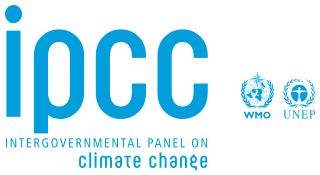
The Special Report on Emissions Scenarios (SRES) is a report by the Intergovernmental Panel on Climate Change (IPCC) that was published in 2000. The greenhouse gas emissions scenarios described in the Report have been used to make projections of possible future climate change. The SRES scenarios, as they are often called, were used in the IPCC Third Assessment Report (TAR), published in 2001, and in the IPCC Fourth Assessment Report (AR4), published in 2007. The SRES scenarios were designed to improve upon some aspects of the IS92 scenarios, which had been used in the earlier IPCC Second Assessment Report of 1995. The SRES scenarios are "baseline" scenarios, which means that they do not take into account any current or future measures to limit greenhouse gas (GHG) emissions.
The Japanese Economic Review is a peer-reviewed academic journal of economics published since 1959 by the Japanese Economic Association. It was formerly called The Economic Studies Quarterly.
Richard S. J. Tol is a professor of economics at the University of Sussex. He is also professor of the economics of climate change at the Vrije Universiteit Amsterdam. He is a member of the Academia Europaea.
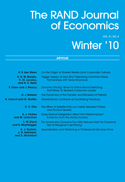
The RAND Journal of Economics is a quarterly peer-reviewed academic journal of economics published by Wiley-Blackwell on behalf of the RAND Corporation. It publishes theoretical and empirical papers on industrial organization and related topics. According to the Journal Citation Reports, the journal has a 2020 impact factor of 1.986.
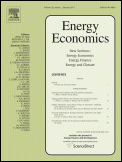
Energy Economics is a bimonthly peer-reviewed academic journal published by Elsevier covering the economic and econometric modelling and analysis of energy systems and issues. The editor-in-chief is Richard Tol. The Journal of Energy Finance & Development (1996–1999) was incorporated into Energy Economics in 1999.
Energy subsidies are measures that keep prices for customers below market levels, or for suppliers above market levels, or reduce costs for customers and suppliers. Energy subsidies may be direct cash transfers to suppliers, customers, or related bodies, as well as indirect support mechanisms, such as tax exemptions and rebates, price controls, trade restrictions, and limits on market access.
This page is an index of sustainability articles.
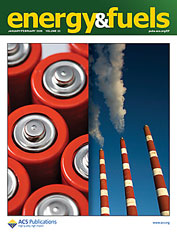
Energy & Fuels is a peer-reviewed scientific journal published by the American Chemical Society. It was established in 1987. Its publication frequency switched from bimonthly to monthly in 2009. The editor-in-chief is Hongwei Wu.
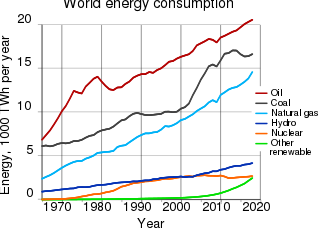
The environmental impact of the energy industry is significant, as energy and natural resource consumption are closely related. Producing, transporting, or consuming energy all have an environmental impact. Energy has been harnessed by human beings for millennia. Initially it was with the use of fire for light, heat, cooking and for safety, and its use can be traced back at least 1.9 million years. In recent years there has been a trend towards the increased commercialization of various renewable energy sources. Scientific consensus on some of the main human activities that contribute to global warming are considered to be increasing concentrations of greenhouse gases, causing a warming effect, global changes to land surface, such as deforestation, for a warming effect, increasing concentrations of aerosols, mainly for a cooling effect.
Resource and Energy Economics is a quarterly peer-reviewed academic journal covering energy economics and environmental economics published by Elsevier. It was established in 1978 as Resources and Energy and obtained its current title in 1993. The editors-in-chief are R.D. Horan and D. van Soest. The journal was founded by University of Chicago economist George S. Tolley, and Tolley continues to serve as an honorary editor.

Energy Technology is a monthly peer-reviewed scientific journal covering applied energy research. It was established in 2013 and is published by Wiley-VCH.
Wind Energy is a monthly peer-reviewed scientific journal covering research on wind power published by John Wiley & Sons. The editor-in-chief is Simon Watson. According to the Journal Citation Reports, the journal has a 2020 impact factor of 2.730, ranking it 78th out of 114 journals in "Energy & Fuels" and 54th out of 135 journals in "Engineering Mechanical".
Progress in Photovoltaics is a monthly peer-reviewed scientific journal covering research on photovoltaics. It is published by John Wiley & Sons and the editor-in-chief is Martin A. Green. According to the Journal Citation Reports, the journal has a 2020 impact factor of 7.953, ranking it 17th out of 114 journals in "Energy & Fuels", 21st out of 160 journals in "Physics Applied", and 59th out of 336 journals in "Materials Science Multidisciplinary".

Nature Energy is a monthly peer-reviewed scientific journal published by Nature Portfolio. The editor-in-chief is Nicky Dean. The 2017 efficiency record (26.6%) in solar cell technology was published in the journal.








